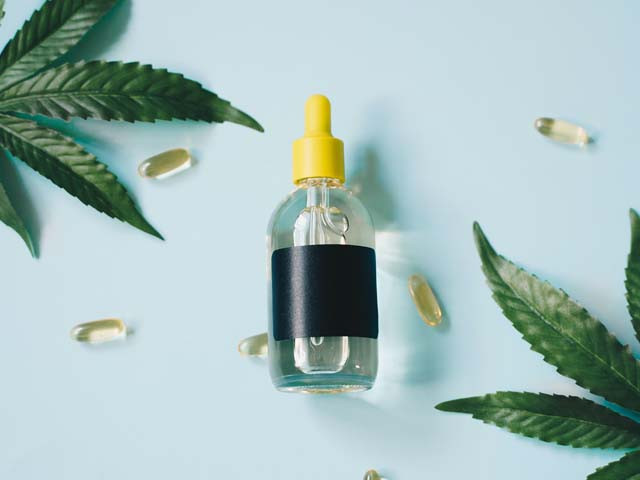Depression is a complex and pervasive mental health condition that affects millions of people worldwide. While conventional treatments such as therapy and medication have been the standard of care, there is a growing interest in alternative approaches, including the use of cannabidiol (CBD) as a potential therapeutic option. CBD, a non-psychoactive compound derived from the hemp plant, has gained popularity for its various potential health benefits. In this blog post, we will explore the relationship between CBD and depression, examining the scientific evidence and discussing the potential role of CBD in managing this debilitating mental health condition.
Understanding Depression
Depression is a multifaceted mental health disorder characterized by persistent feelings of sadness, hopelessness, and a lack of interest or pleasure in activities. It can significantly impact one’s daily life, relationships, and overall well-being. The exact causes of depression are not fully understood, but a combination of genetic, environmental, and psychological factors plays a role in its development.
Conventional Treatments for Depression
Treatment options for depression often include psychotherapy, medication, or a combination of both. Selective serotonin reuptake inhibitors (SSRIs) and serotonin-norepinephrine reuptake inhibitors (SNRIs) are commonly prescribed medications to manage depression symptoms. However, these medications may come with a range of side effects and are not always effective for everyone. This has led to an increasing interest in exploring alternative treatments like CBD.
CBD and the Endocannabinoid System
CBD interacts with the endocannabinoid system (ECS), a complex network of receptors and neurotransmitters present throughout the body. The ECS plays a crucial role in regulating various physiological processes, including mood, stress response, and the immune system. Researchers believe that CBD’s potential therapeutic effects may be linked to its interactions with the ECS.
Scientific Research on CBD and Depression
Several studies have investigated the potential of CBD in managing depression, although the research is still in its early stages. While more robust clinical trials are needed, the existing evidence is promising.
- Neurogenesis and Neuroplasticity: Some animal studies suggest that CBD may promote neurogenesis (the creation of new neurons) and enhance neuroplasticity (the brain’s ability to adapt and change). These factors are essential for combating depression, as they can help repair and rewire the neural circuits associated with mood regulation.
- Serotonin Receptors: CBD may influence serotonin receptors, which are central to the regulation of mood. An imbalance in serotonin levels is often linked to depression, and CBD’s potential role in modulating these receptors has garnered significant attention.
- Anxiety Reduction: While depression and anxiety are distinct conditions, they often co-occur. CBD has been investigated for its anxiolytic (anxiety-reducing) properties, and this may indirectly benefit individuals with depression, particularly those who experience comorbid anxiety.
- Anti-Inflammatory Effects: Some studies suggest that CBD possesses anti-inflammatory properties, which may be relevant to depression. Chronic inflammation is associated with an increased risk of developing depressive symptoms, and CBD’s anti-inflammatory potential could mitigate this risk.
- Stress Management: CBD may help individuals better cope with stress, a significant trigger for depressive episodes. By reducing the physiological and psychological effects of stress, CBD could potentially aid in preventing or managing depression.
The Importance of Dosage and Quality
It’s crucial to note that the effectiveness of CBD in managing depression can be highly dose-dependent and influenced by the quality of the CBD product. Not all CBD products are created equal, and factors such as concentration, purity, and method of consumption can all impact its potential therapeutic benefits. Consulting with a healthcare professional is essential when considering CBD as part of a depression management plan. They can help determine the appropriate dosage and ensure the use of high-quality products.

Legal Considerations
The legal status of CBD varies by country and state. In some regions, CBD is readily available over-the-counter, while in others, it may be subject to more stringent regulations. It’s essential to be aware of local laws and regulations regarding the use of CBD.
Potential Side Effects
CBD is generally considered safe and well-tolerated, but some individuals may experience side effects, such as dry mouth, dizziness, changes in appetite, and diarrhea. These side effects are typically mild and transient.
Conclusion
The relationship between CBD and depression is a promising area of research, and early findings suggest that CBD may have a potential role in managing this complex mental health condition. However, it’s essential to approach CBD as a complementary or alternative therapy rather than a replacement for conventional treatments. Consulting with a healthcare professional is crucial to determine the most appropriate approach to managing depression and incorporating CBD into your wellness plan. If you need any additional tips and information about CBD, go to the website to learn more.
As the scientific understanding of CBD and its effects on depression continues to evolve, it’s crucial to stay informed about the latest research and consult with experts who can provide guidance tailored to your specific needs. While CBD may offer hope for individuals struggling with depression, a comprehensive approach to mental health, including therapy, lifestyle changes, and social support, remains essential in addressing this challenging condition.

